Prof Pecl has joined the editorial board of this new solutions focused journal npj Ocean Sustainability.
https://www.nature.com/npjoceansustain/editors
Today, to mark the start of COP26 UN climate summit in Glasgow, University of Tasmania climate researchers are launching an unprecedented online resource on climate change for young people in Tasmania.
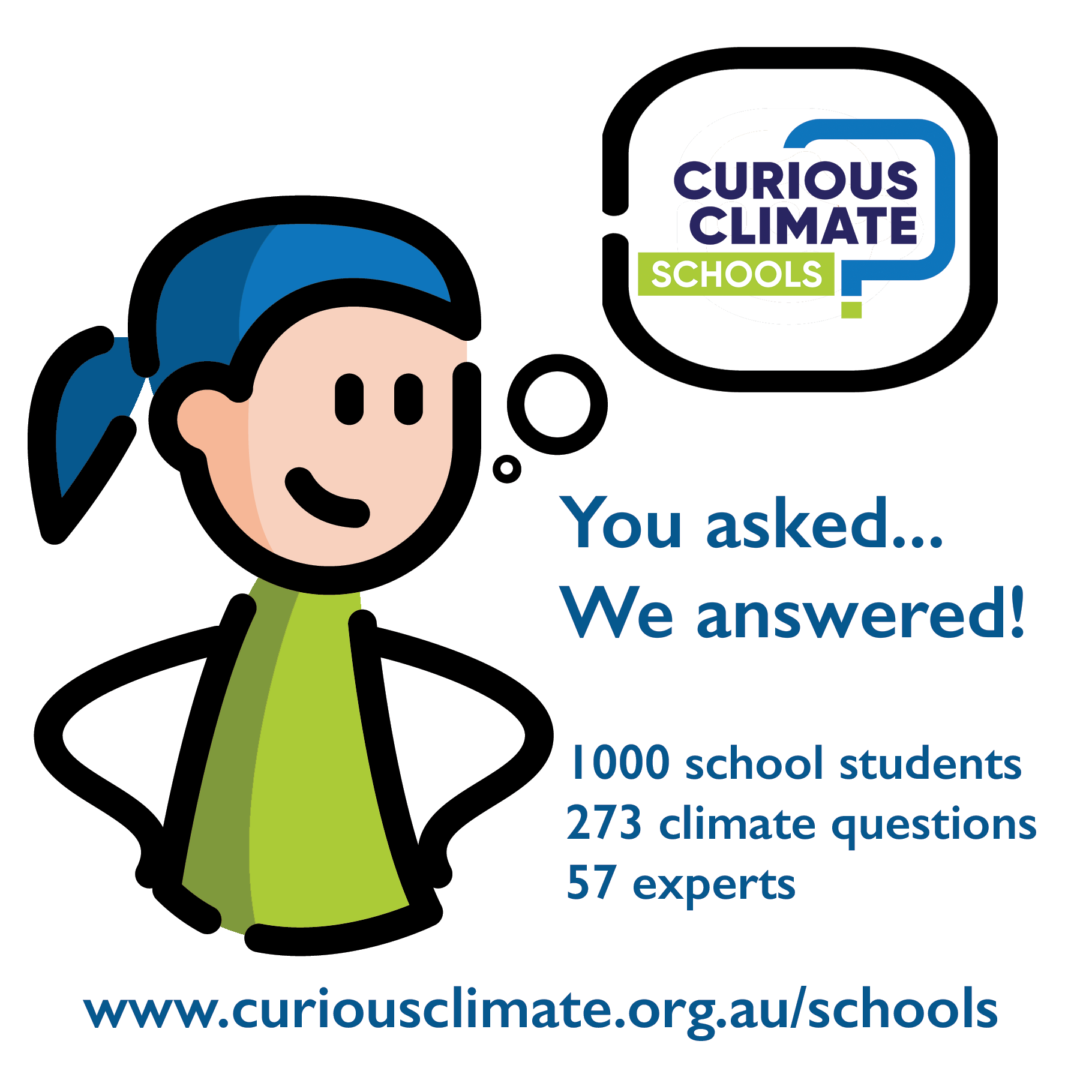
As part of the Curious Climate Schools project, one thousand school students worked with their classes to come up with their top 273 questions about climate change. The Curious Climate Schools team harnessed the collective knowledge of 57 experts to answer them.
Experts including climate scientists, climate communicators, conservation biologists, fire scientists, chemists, lawyers, engineers, psychologists, oceanographers, Indigenous knowledge specialists and health scientists answered these wide-ranging questions. Curious Climate Schools draws on the huge depth of climate change knowledge at the University of Tasmania, with help from experts at CSIRO, University of Adelaide, Massey University, and the Chinese Academy of Sciences.
The Curious Climate Schools website answers questions from school students across Tasmania, and also provides resources on what's being done about climate change at a global level, how to handle feelings about climate change, and what we can do to be part of the solution. As well as the website, experts are heading out to visit schools around Tasmania over the next two weeks to talk about climate change.
Curious Climate team was lead by CMS researcher Chloe Lucas. CMS director Gretta Pecl and CMS member Rachel Kelly were also part of the team.
CMS members and students who are part of the experts are Vanessa Adams, Asta Audzijonyte, Scott Bennett, Scott Condie, Andrew Constable, Stuart Condie, Aysha Fleming, Maree Fudge, Beth Fulton, Dean Greeno, Alistair Hobday, Malcolm Johnson, Mary Mackay, Phillipa McCormack, Jan McDonald, Jess Melbourne-Thomas, Linda Murray, Emily Ogier, and Jonny Stark.

Curious Climate Schools is funded by the Tasmanian Climate Change Office, the Centre for Marine Socioecology and the University of Tasmania’s College of Science and Engineering.
For more information:
Dr Chloe Lucas [email protected]
Dr Gabi Mocatta [email protected]
Find media release here.
CMS contributors included Dean Greeno, Jan McDonald, Phillipa McCormack and Gretta Pecl.
The paper outlines an ambitious vision for a ‘climate-positive’ Tasmania and policy options designed to establish the state as a global exemplar of effective and ambitious climate action.
Please find more information and download the paper here
We are very excited that our CMS Director, Prof Gretta Pecl has been nominated as a finalist for the 2022 Tasmanian Australian of the Year Award for her pioneering work establishing the Redmap program. The awards will be announced in Hobart on 29th October. We wish you all the best Gretta!
We are very proud of our CMS Director Prof Gretta Pecl, who has been awarded the 2021 K. Radway Allen Award by the Australian Society for Fish Biology (ASFB) for her outstanding contributions to the field of fisheries science. Huge Congratulations Gretta!!
The award, which is the most prestigious honour given by the ASFB, recognises Professor Pecl’s broad interdisciplinary research interests, with more than 150 published papers to her name in the marine and fisheries research space.
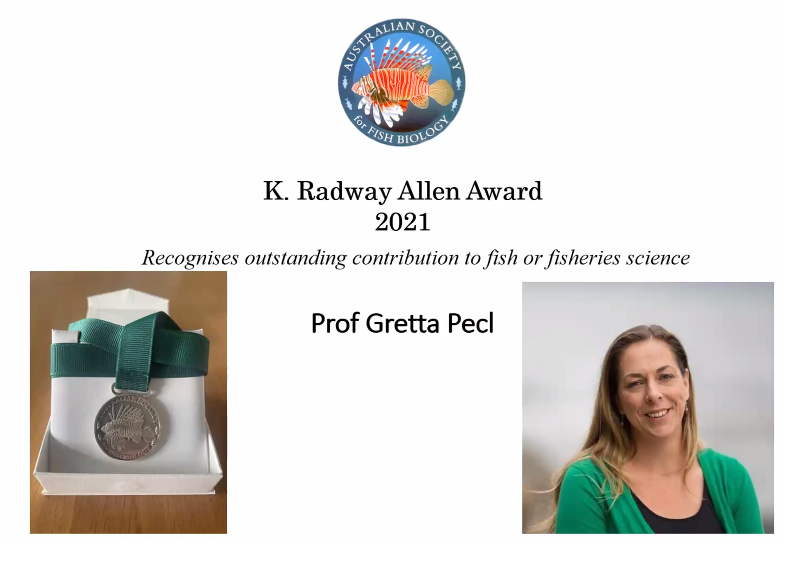
PhD student Katie Marx is a finalist in the 3-minute thesis (3MT) presentations!
You can have a look at the 2021 finalists' presentations here
Katie is studying the connection of gateway citizens with Antarctica.
Prof Gretta Pecl opened the Climate Week at Huonville High, organised by their Zayed Sustainability Team. Prof Pecl talked about how the IPCC process worked and then made bike powered donuts!
These amazing youth leaders have a whole week of climate action activities planned!
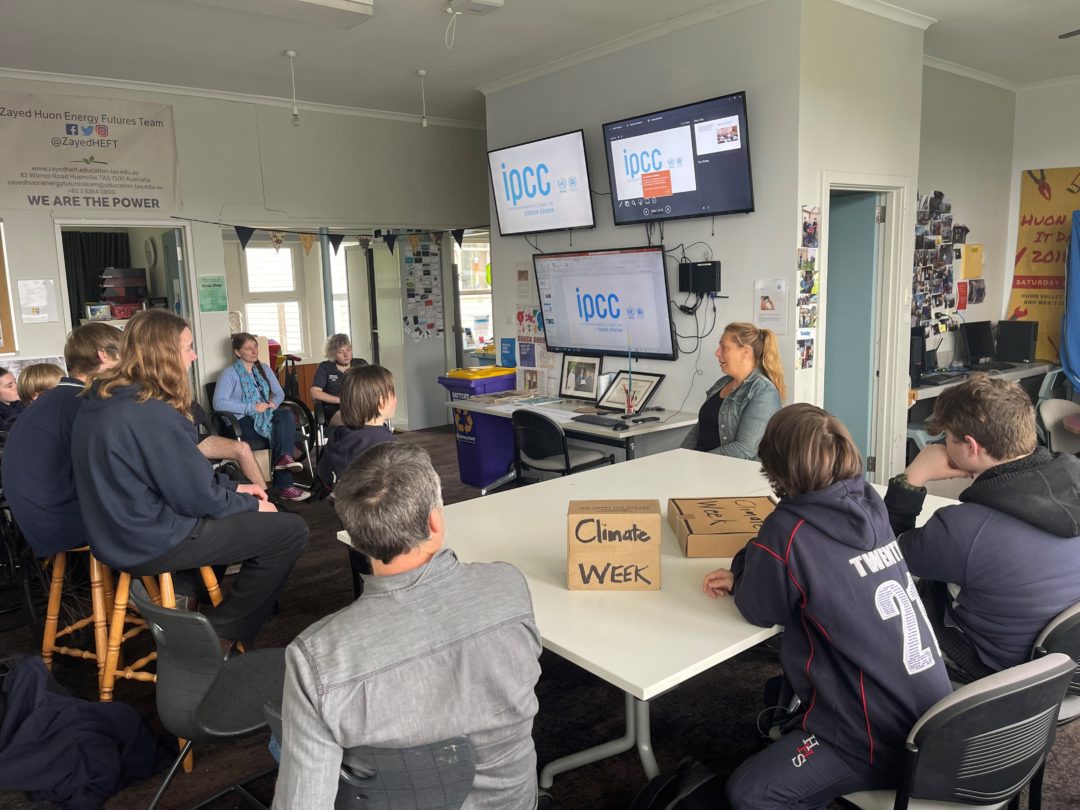
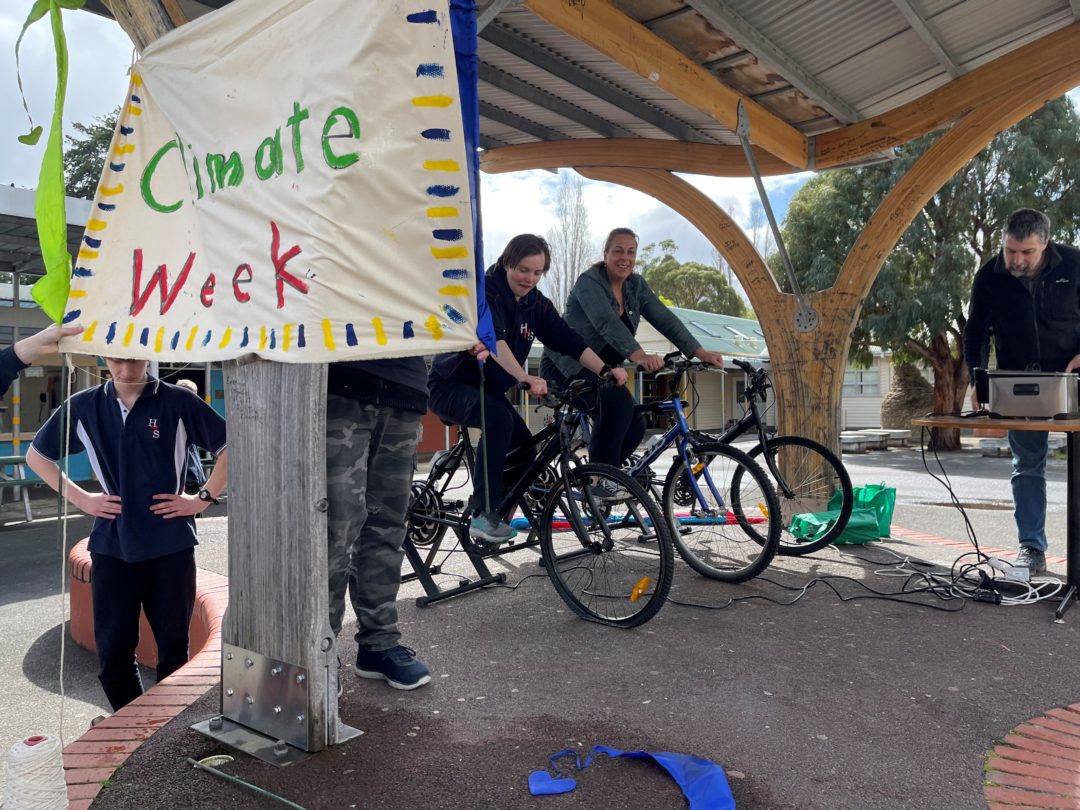
Prof Catriona MacLeod will be presenting at this event about "Local climate impacts and solutions".
Find more information about the event in the poster below.
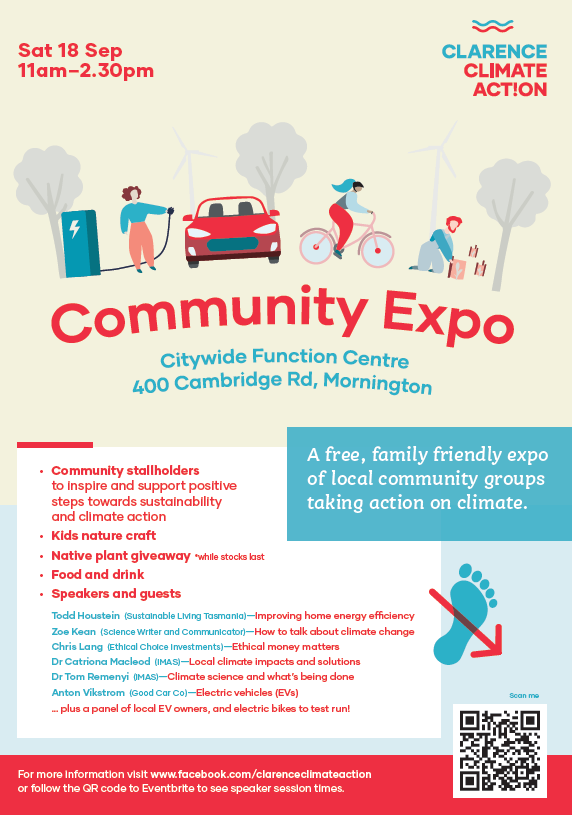

CMS member Dean Greeno was interviewed by ABC radio Hobart about the Future Seas project, the Indigenous Peoples piece, and the importance of empowering the voices and agency of Indigenous Peoples: "What role does Indigenous knowledge play in observing and reversing climate change?"
Listen interview here
Sincere congratulations to Prof Julia Blanchard for her successful ARC Future Fellowship application with the project "Bridging the land–sea divide to ensure food security under climate change"!!
This project aims to comprehensively evaluate ocean-based food solutions to meet food security needs under climate change. It will resolve a critical blind spot in current plans that isolate land and sea food systems and neglect their interdependencies. Combining global models and data, it will assess the constraints of ocean-based food solutions by anticipating and accounting for land-sea links including: agricultural runoff, shared feed resources for farmed animals, and trade-offs for biodiversity and climate mitigation. It will deliver a major leap in our capacity to undertake holistic ecosystem assessment of future food production pathways. Benefits will include integrated food–biodiversity–climate policies for Australia and the world.